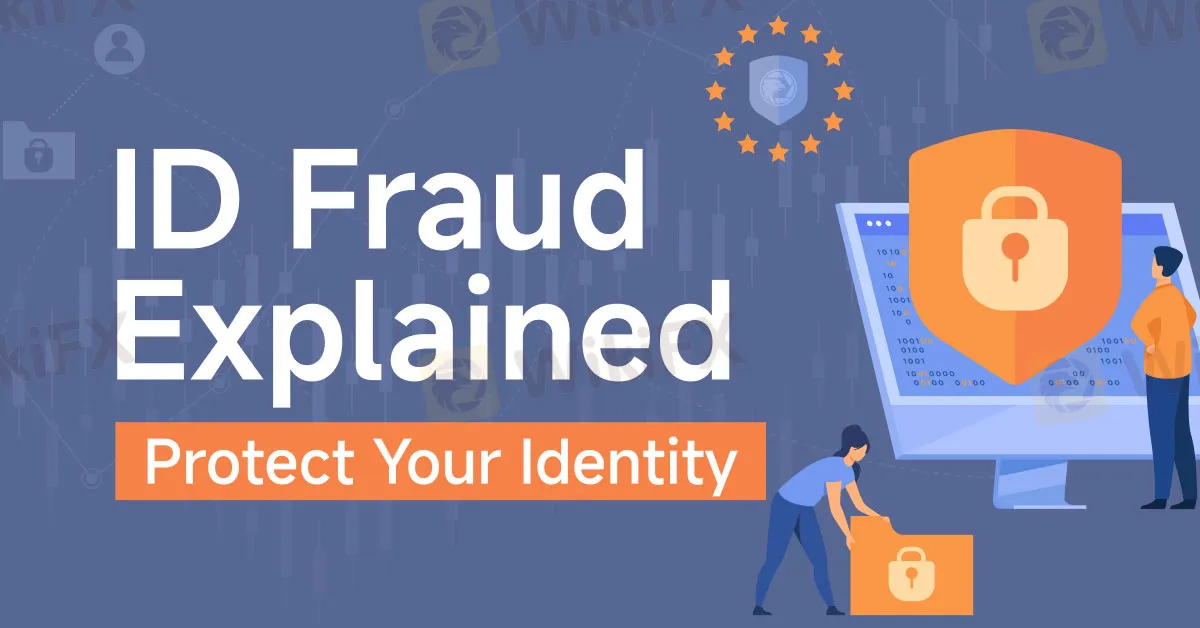简体中文
繁體中文
English
Pусский
日本語
ภาษาไทย
Tiếng Việt
Bahasa Indonesia
Español
हिन्दी
Filippiiniläinen
Français
Deutsch
Português
Türkçe
한국어
العربية
ID Fraud Explained | Protect Your Identity
Abstract:In an increasingly digitized financial landscape, the menace of identity fraud looms large, casting its shadow across various sectors, including the ever-evolving realms of forex and cryptocurrency trading. Understanding the nature of this threat, how individuals become unwitting victims, and the specific risks posed in the online trading sphere is crucial in fortifying defences against this pervasive financial crime.

Israeli identity verification technology firm AU10TIX has recently unveiled its Q3 2023 Global Identity Fraud Report, a comprehensive analysis of millions of transactions across 249 nations spanning July through September 2023. This thorough examination exposes notable alterations in organized identity fraud patterns.
Among the key findings, the report highlights a noteworthy surge of 56% in fraudulent activities within the digital payments sphere. This substantial rise stands in stark contrast to a significant 51% decrease in fraudulent incidences associated with cryptocurrencies.
Identity fraud involves the unauthorized use of personal information, such as Social Security numbers, credit card details, or other sensitive data, for deceptive financial gain. Perpetrators deploy various methods to acquire this information, from phishing scams and data breaches to social engineering tactics.

Modern cybercriminals employ sophisticated tactics that frequently catch individuals off guard. Among these strategies are phishing scams, where fraudsters impersonate legitimate entities via emails or websites, coaxing victims into disclosing sensitive information. Data breaches on a large scale compromise databases, exposing personal data that can be exploited for fraudulent activities. Additionally, social engineering tactics manipulate individuals into voluntarily divulging confidential information, further exacerbating the risk of falling victim to identity fraud.
The dynamic and decentralized landscape of online trading platforms provides a fertile ground for both opportunities and risks. Within these realms, identity fraud manifests in various troubling ways. Fraudsters execute account takeovers, breaching trading accounts to siphon funds or execute unauthorized trades. Moreover, criminals exploit stolen identities to fabricate fake accounts, engaging in illicit transactions under unsuspecting victims' names. Additionally, scammers within these domains employ phony investment schemes, using false identities to lure investors into fraudulent endeavours, thereby undermining credibility and causing financial harm.
Mitigating the risks posed by identity fraud demands a multi-faceted approach. Firstly, education and awareness play pivotal roles in safeguarding against fraudulent activities. Staying informed about common fraud tactics and remaining updated on evolving security measures are paramount. This knowledge equips individuals to recognize red flags, thereby averting potential scams. Moreover, platforms like WikiFX can be instrumental in this effort, offering insights and reviews about trading platforms, aiding users in making informed decisions. Secondly, implementing robust security measures stands as a cornerstone in fortifying defences. Utilizing multi-factor authentication, ensuring secure connections, and regularly updating security software create formidable barriers against cyber threats. Additionally, due diligence in evaluating trading platforms is essential. Verifying their legitimacy, scrutinizing user agreements, and reviewing privacy policies can significantly mitigate risks. Finally, maintaining vigilance in transactions is crucial. Scrutinizing transaction details, monitoring account activities, and promptly reporting any suspicious behaviour are fundamental practices to thwart identity fraud.

Disclaimer:
The views in this article only represent the author's personal views, and do not constitute investment advice on this platform. This platform does not guarantee the accuracy, completeness and timeliness of the information in the article, and will not be liable for any loss caused by the use of or reliance on the information in the article.
Read more

WikiEXPO Global Expert Interview: Advanced Practices and Insights in Financial Regulation
In the midst of rapid advancements and evolving landscapes in financial technology, financial regulation, and ensuring financial security, WikiGlobal stands at the forefront, closely tracking these transformative trends. As we embark on our series of exclusive interviews focusing on these pivotal areas, we are delighted to have had an in-depth conversation with.

Alleged Concerns with TradeEU.global's Trading Practices
An individual trader has come forward with allegations of an unfavourable experience while using the services of the broker TradeEU.global.

Lured by False Promises: Malaysian Driver Lost RM218K to an Investment Scam
A 49-year-old e-hailing driver in Malaysia fell victim to a fraudulent investment scheme, losing RM218,000 in a matter of weeks. The scheme, which falsely promised returns of 3 to 5 per cent within just three days, left the individual financially devastated.

SFC Freezes $91M in Client Accounts Amid Fraud Probe
SFC freezes $91M in client accounts at IBHK, SBI, Monmonkey, and Soochow over suspected hacking and market manipulation during unauthorized online trades.
WikiFX Broker
Latest News
Saxo & Portuguese Bank Partnership
SEC Fines Broker-Dealers $275K for Incomplete SAR Filings
WikiEXPO Global Expert Interview: Advanced Practices and Insights in Financial Regulation
Lured by False Promises: Malaysian Driver Lost RM218K to an Investment Scam
FTX Sets March 2025 Timeline for Creditor Payouts: What It Means for Investors
What is an Economic Calendar? How it works
Italian Regulator Warns Against 5 Websites
SFC Freezes $91M in Client Accounts Amid Fraud Probe
Bybit Launches Gold & FX Treasure Hunt with Real Gold Rewards
Mastercard's 2030 Vision: Biometric-Driven, Tokenized Payments
Currency Calculator


